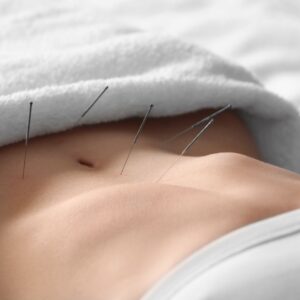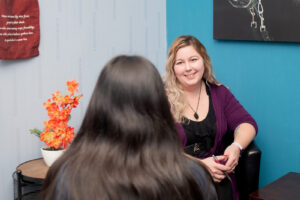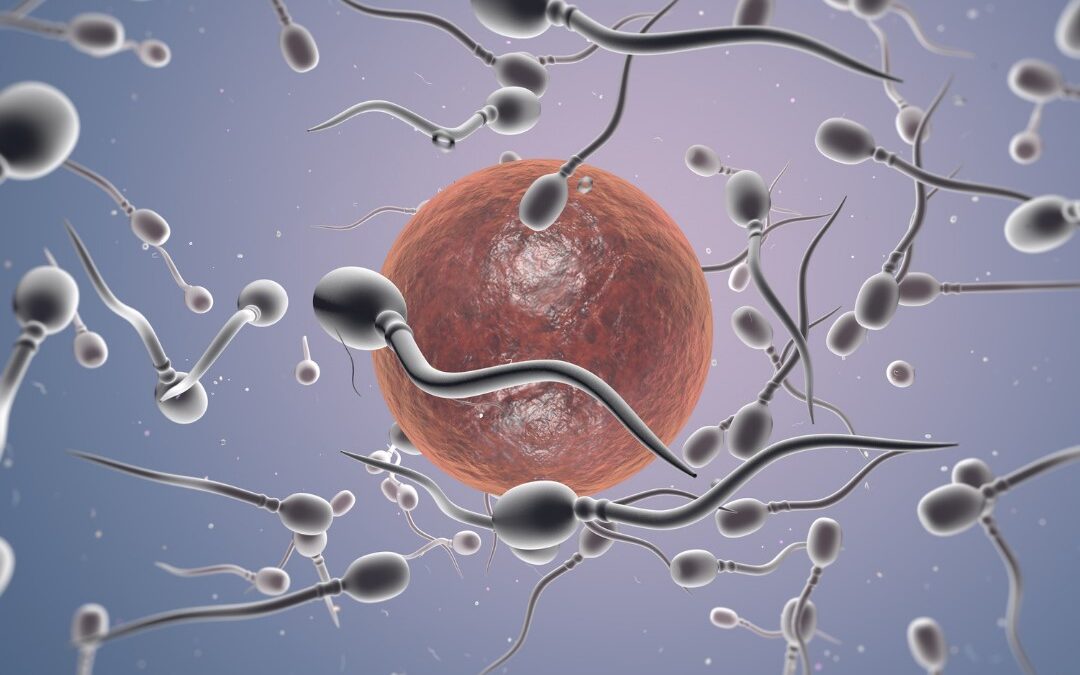Fertility can be a complex and deeply personal matter for many women. While the road to conception can be straightforward for some, others may face a labyrinth of challenges. For those seeking alternative pathways to pregnancy, holistic fertility treatments offer hope. They advocate for a gentle and natural approach to this intimate voyage. The quest for motherhood is as old as humanity, yet it remains one of modern society’s most pressing concerns. The ability to conceive, often taken for granted, can be an elusive dream for many women. Amidst this landscape, holistic treatments are becoming beacons of light, pointing toward a more natural and integrative way to nurture fertility. Here, we will explore the potential of holistic interventions and how they might assist those on their conception journeys.
Understanding Holistic Fertility Treatments
Holistic fertility treatments stand apart from conventional methods through their emphasis on treating the whole person. This philosophy looks beyond traditional practices and may be an excellent addition to hormonal injections and IVF. Focusing on natural remedies and lifestyle alterations catering to physical, emotional, and spiritual health empowers women to participate actively in their fertility journey.

Acupuncture and Fertility
Acupuncture is a time-honoured foundation of traditional Chinese medicine. It has emerged as a celebrated modality in Western healing practices, particularly for its promising role in enhancing fertility. This ancient technique stimulates precise meridians within the body to re-establish equilibrium and promote the natural flow of energy. Scientific studies lend credence to its efficacy. They reveal that acupuncture can increase fertility rates by improving blood flow to reproductive organs, balancing hormone levels, and reducing stress. By integrating this practice, numerous individuals have reported a marked improvement in their reproductive health
This presents an exciting opportunity for individuals seeking to optimize their chances of conception. It also underscores the importance of a holistic approach to reproductive health. As we continue to unravel the mysteries of acupuncture, its place in modern fertility treatments will undoubtedly become more widely recognized. This time-honoured tradition has immense value in enhancing general health, providing optimism and viable options for those facing difficulties with conceiving.

Herbal Medicine’s Role in Conception
Throughout the ages, herbal medicine has been interwoven with our ancestors’ quest for wellness. It offers natural remedies to various conditions, including the delicate process of enhancing fertility. Research has highlighted the encouraging potential of plants like vitex, commonly called chasteberry, for their possible impact on regulating hormones and improving ovulation. Alternative Medicine practitioners believe that red clover, with its phytoestrogenic properties, offers a supportive boost to reproductive health. Furthermore, they celebrate the understated evening primrose oil, rich in omega-6 fatty acids, for promoting cervical mucus quality, thereby facilitating the ideal conditions for conception.
Aligned with empirical wisdom, modern research scrutinizes these claims, striving to quantify their efficacy with scientific rigour. While statistics and conclusive evidence are growing, they require more exploration to endorse these herbs as mainstays in reproductive support.
Amidst this hopeful narrative, a note of caution to consult with all healthcare professionals administering care before integrating herbal remedies into your daily regimen. A Traditional Chinese Medicine practitioner, like Xinling Leng, will understand how herbal remedies interact. Bring your family physician or pharmacist into the loop before committing to herbal medicines to guard against interactions with Western medication. Doing so is a fundamental step that champions safety and personalizes care. Such consultations ensure that potential interactions with present medicines or treatments are carefully considered, honouring your health’s unique tapestry. This partnership between you and your healthcare providers is paramount, underpinning a wellness journey rooted in understanding and respecting ancient remedies and contemporary medical insights.

Diet and Fertility
Our food choices are vitally important for our overall health and reproductive potential. Nourishing your body with a diet abundant in antioxidants, like vitamins E and C found in fruits and vegetables, can protect your cells from damage and support your body’s natural reproductive processes. Lean proteins, such as fish and poultry, offer essential amino acids without the added burden of saturated fats, promoting optimal hormonal balance. Healthy fats, including those from avocados and olive oil, play a crucial role in developing healthy eggs and sperm. Whole grains, rich in fibre, can help regulate blood sugar levels, which are critical for maintaining hormonal equilibrium.
Research suggests that women who follow a diet high in these components experience an increased likelihood of conception. Emerging studies illuminate the profound impact diet can have on fertility. For instance, research published in “The American Journal of Obstetrics and Gynecology” highlights that woman who followed a diet rich in healthy fats, whole grains, and plant-based proteins improved their ovulatory function. Conversely, those who consumed higher levels of trans fats, refined carbohydrates, and animal proteins experienced diminished fertility.
We understand that the path to conception is profoundly personal and sometimes challenging. By providing your body with these vital nutrients and building blocks, you’re taking a proactive step towards creating a welcoming environment for new life and taking control of your health. With a balanced and nourishing diet, you can make positive changes in your reproductive health and support the journey towards growing your family.
Remember that every person’s body is unique, so working with a healthcare professional to find the best dietary plan for your needs and goals is essential. Holistic nutritionists, such as Lindsey Shields, specialize in crafting fertility-boosting dietary plans that consider the singularity of your needs. While the nutritional insights offered here lay a solid groundwork for aspiring parents, a hands-on approach by a professional like Shields, who conducts extensive personal assessments, is indispensable.

Reducing Stress, Boosting Fertility
Stress can significantly affect your health, and this is especially true when it comes to fertility. Studies have found that reducing stress can dramatically increase women’s chances of becoming pregnant, with some research showing as much as a 30% improvement. By bringing calming practices such as meditation and yoga into your life, you can create a more peaceful, balanced state of mind and body that may lead to better fertility outcomes.
However, there are other, perhaps less familiar, ways to manage stress that can also be incredibly effective. Working with a hypnotherapist like Ashlee Bennett might open new doors on your wellness path. This type of therapy can help you discover and change deep patterns of thinking that contribute to your stress, reshaping how your mind works positively. This could be especially helpful for those dealing with anxiety related to infertility.
Similarly, consulting with psychotherapists such as Hedy Anvari allows you to engage in meaningful conversations that provide custom solutions for your mental well-being. Studies show stress and anxiety can reduce fertility. A psychotherapist will guide you through complex emotions and equip you with specialized strategies to overcome stress and anxiety. These experts support you with scientific knowledge and emotional understanding, giving you renewed optimism and strength on your journey toward becoming a parent.

Exercise and Sleep: Unsung Heroes of Reproductive Health
Understanding and nurturing our bodies through regular but gentle exercise and ensuring sufficient, restful sleep is fundamental to our health and deeply connected to fertility. Moderate, low-impact activities such as brisk walking, yoga, or swimming soothe and energize our bodies. But did you know that moderate exercise enhances blood flow, creating a nurturing environment for reproductive health. Studies suggest that women who engage in regular, moderate exercise may experience a 5-20% increase in fertility rates.
Quality sleep, often underestimated, is a pillar of our health, crucially rebooting both body and mind. During these restful hours, our bodies can repair and balance hormones pivotal to conception. Adequate sleep, defined as 7-9 uninterrupted hours per night, has been linked to a balance in the hormones governing ovulation. Getting enough quality sleep enhances the chances of a successful pregnancy.
Both moderate exercise and quality sleep are beneficial habits as they acknowledge and respect our body’s needs. They offer physiological support and a source of empowerment and control in our wellness journeys, reminding us that our daily choices are deeply interconnected with the miracle of conception.
Conclusion
Holistic fertility treatments invite us to rethink the path to pregnancy. They are a testament to the notion that conception is a dance of harmony within our bodies. Women trying to conceive may find solace and success in these natural practices.
We encourage you to open your heart and mind to holistic fertility. Whether it’s acupuncture, a diet tweak, or a new stress-reduction practice, every step toward a natural pregnancy is a stride toward hope.
—
To all the strong women on this path, remember that your story is unique, and so, too, will be your road to motherhood. Keep hope and health at the heart of your quest, and may your pregnancy dreams come to fruition.
Written by DeVera Nybo, MBA, Owner of Newleaf Total Wellness Centre

